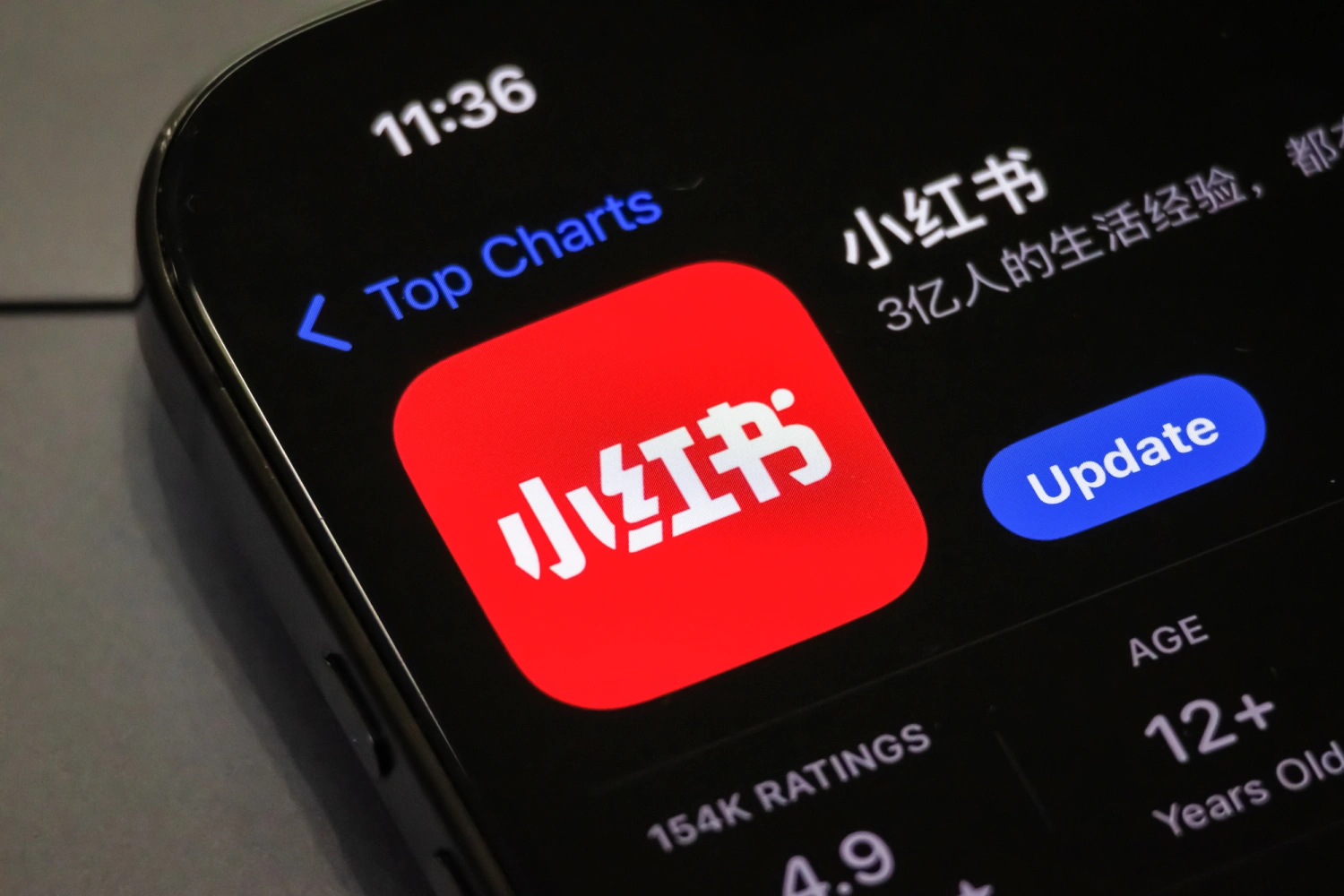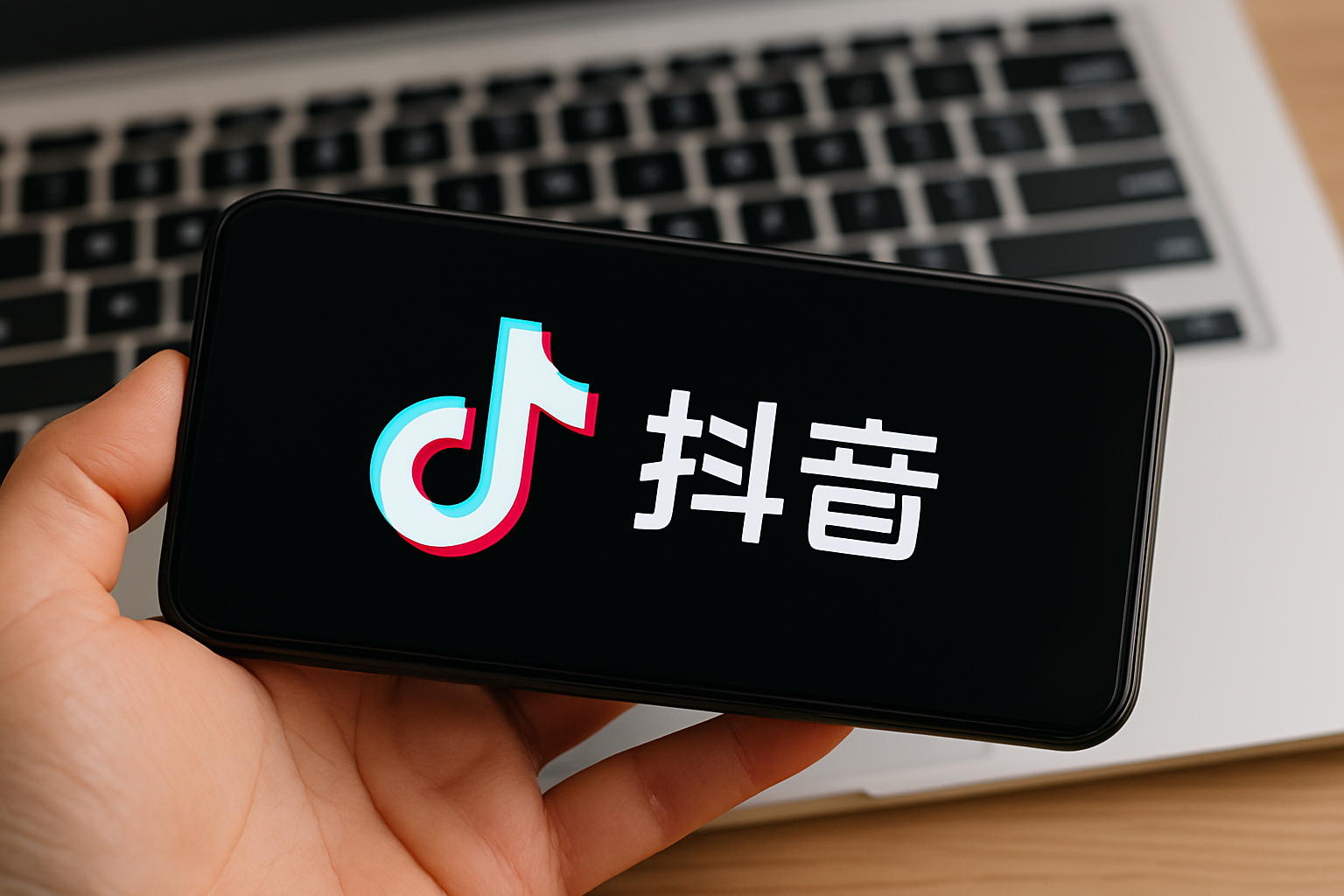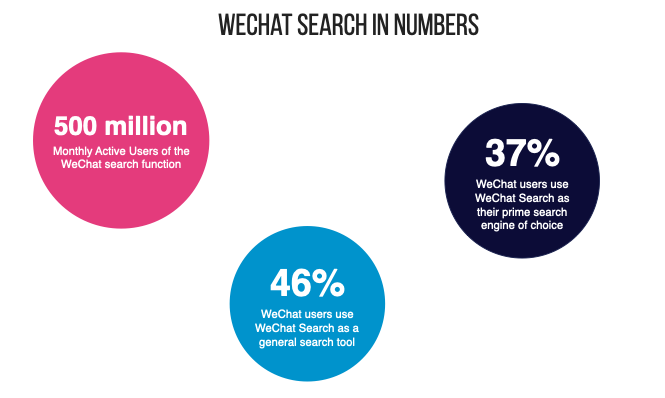Opening an official account can be a daunting task for companies, especially those based overseas. Until a few years, it wasn’t possible for foreign entities to register their official WeChat account or they had to use 3rd party business license in order to do so. Still, many online sources insist that an account created with a foreign business license is not visible to users based in China.
We are happy to let you know that none of the above is true.
Firstly, foreign companies have been permitted to open and legally own a WeChat official account entirely controlled by their overseas entity since 2018. We have helped dozens of our clients to register an official account with their overseas paperwork.
Secondly, all of their content is visible to their followers based in and outside of China. Let’s see how to get started with the WeChat official accounts!
International vs Local WeChat official account
When it comes to WeChat official accounts, be they international or local, it looks the same for the audience. To clarify, the difference is only in the account creation and features of the WeChat services.
Type and number of official accounts
Brands with a Chinese business license have the option of a service or subscription account, the two types of official WeChat accounts available, whereas brands with an international business license can only choose a service account.
>>> We explain more about the differences between service and subscription accounts here
Furthermore, only one international official account can be created under one license, but with a Chinese business license, you can create two official accounts under one license.
Other services
Chinese WeChat accounts get easier access to additional services like advertising, whitelisting or WeChat Pay, etc., while it is slightly more complex for international accounts to access these services, although some are still available.
For example, overseas businesses might be restricted from advertising in certain industries and application for an advertising account on WeChat is not automatic but granted on a case-by-case basis. Since we are working directly with Tencent, we are able to help with these issues and troubleshoot immediately.
Time and fees
The registration time for an account using a Chinese business license is usually a few working days. For accounts registering with an overseas account, each application is reviewed individually and it can take more time. Normally, the process of registration takes up to 14 days and is relatively smooth.
However, in recent months, the next step – verification of the account, can take a couple of weeks. Verification is required for the account to be recognized as official and in order to unlock key account features. From the user’s perspective, a verified WeChat account also means that it’s legitimate and can be trusted.
When it comes to the fee that brands need to pay WeChat for yearly account validation, Chinese WeChat official accounts need to pay a fee of 299 RMB, and international official accounts have to pay a fee of 99 USD per year.
Admin
An extremely important role, the admin will scan the QR codes to approve any major changes o the account, appoint article editors, and more. Every WeChat account must have an admin. Admin must approve all major account operations by scanning a QR code, including adding operators with limited authorizations but who can fully prepare and publish articles.
For accounts using a local business license, Tencent requires a Chinese citizen (Chinese local ID) to be the admin, it’s best to have a trusted employee appointed.
For the accounts using the international business license, the admin can be a foreigner. A personal WeChat account verified with a bank card (can be overseas and can be unlinked after the procedure and passport information will be required.
It’s extremely important to hand over the admin role if an employee is leaving a company, otherwise, the process is quite troublesome. But nevertheless, it’s the company that is always the owner of the account and not the admin. It’s just quite hard to appoint the new admin without the previous one scanning the approval codes.
Pros and cons of Chinese and international WeChat official accounts
- From the user’s / follower’s perspective, there is absolutely no difference. Brand followers based in China or abroad will receive exactly the same updates and articles.
- For international accounts, an additional application is required to start media buying (WeChat ads) or WeChat payments (WeChat pay for e-commerce).
- Apart from admin, there are operators (in this case e.g. agency or other company employees) who can post but cannot approve major changes on the account.
- Both types of accounts have the same login page and backend, which are available in Chinese and (partially) English.
- So apart from some minor inconveniences like additional verifications for media buying, the international account has exactly the same functions. It’s just the legal setup behind it is a bit different e.g. allowing a non-Chinese to be the admin. Apart from that, the login page for creators and articles shown to fans look the same.
If your company has a local branch in China, we strongly suggest you consider opening an account using local paperwork as the process is much faster and smoother. Locally-created accounts have access to more features too.
On the other side, if you can’t appoint a local person to be an admin, you might prefer to go with an international account. Alternatively, we can also support you to appoint a trusted admin on our side while you’ll be 100% the legal owner of the account.
Under any circumstances, we don’t recommend registering an official account using 3rd party business license as in this case you won’t be the legal owner of the account. In the worst-case scenario, your account can be suspended and all articles and followers lost.
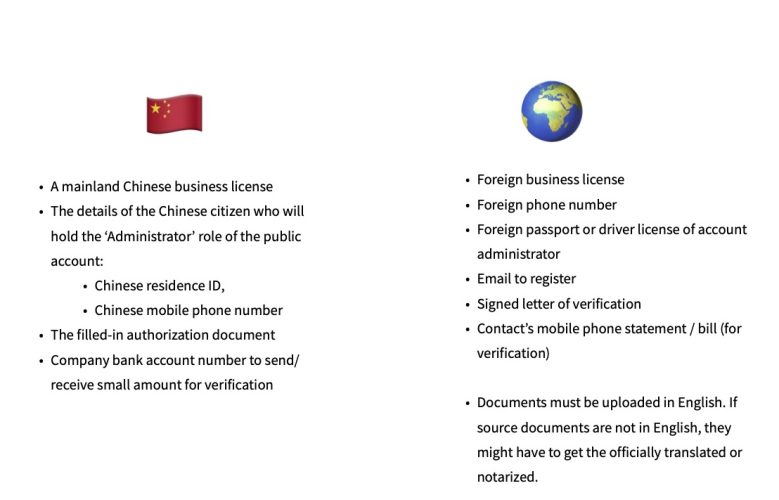
Introduction to WeChat Official accounts
WeChat official accounts are one of the easiest ways for brands and businesses to reach their target audience. You can use it to build a customer database as well as attract and retain customers for your business.
There are two types of WeChat official accounts available, they are
- WeChat subscription account
- WeChat service account
Service and subscription accounts offer very different user experiences hence the user journey and landing on the article vary.
Subscription accounts are gathered in a separate folder where accounts are shown according to an algorithm (most often read accounts) compared to chronological order before. Moreover, service accounts have the same priority as user contacts in terms of notification status and appear on the main page in chronological order.
WeChat subscription account
A content-centric approach to consumer activation and interaction with limited features but a high potential for reaching consumers
- A subscription account can push once per day with up to 8 articles in each push (but only the top 2 articles are visible in the feed),
- More frequently posting accounts are gathered within one folder.
- Originally in chronological order, now switched to algorithmically sorted with most read at the top of the user’s feed.
- As there is no direct notification (users see a red dot implying that there are some new updates) frequent pushes are less obtrusive for users.
- Pros:
- Frequent posting possibilities.
- Less annoying to users.
- Cons:
- Dramatically lower exposure as the account is tucked inside the subscription folder with other accounts causing a multiple-step user journey.
- Advanced coding options or CRMs not available.
- Good for: news, FMCG, daily updates, etc.
WeChat service account
Provide a service or tool to customers.
- Service accounts show directly in main screen with contact-level notification priority.
- Service accounts can push 4 times per month with up to 8 articles.
- Appear in chronological, real-time order.
- Direct notifications (users see a red dot among chats from their contacts) make each notification much more noticeable for users.
- Pros:
- Direct notifications.
- Greater exposure.
- Bespoke solutions like CRM integration, WeChat Pay integration, etc.
- Cons:
- Direct notifications can be much more obtrusive for users and each push can cause efflux of followers if they find the content is not interesting enough for them.
- Good for: B2B, luxury, e-commerce.
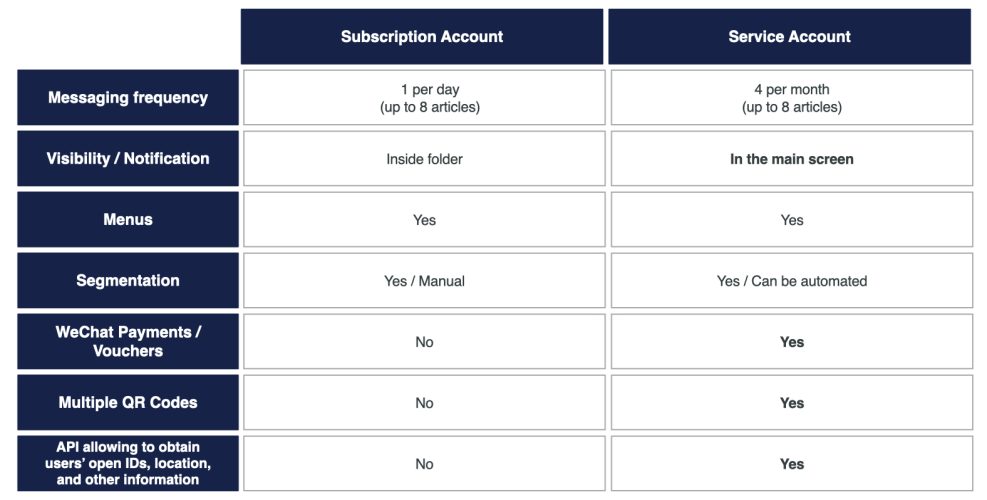
How to Open a WeChat Official Account Abroad
There are two ways to create an international WeChat official account
- You can directly go to WeChat and create your own account for your brand
- Collaborate with agencies like The WeChat Agency, where we help businesses to set up WeChat accounts using their own paperwork.
Here’s how to create an international WeChat Official account directly through WeChat
Step 1: Register an account on WeChat’s Official Account platform
Step 2: Pick your account type (The default account type for the international official account is “Service account)
If you prefer a subscription account, you will can only do it with a Chinese business license.
Step 3: Fill in the registration form
In this step, you fill in the basic information for example registration email. Be careful as you won’t be able to change this email later on.
Step 4: Confirm account type
Step 5: Register your Official account
Businesses need to provide their company name, registration number, the admin’s name, and mobile number along with the admin’s ID card number, passport number, or driver’s license number
Step 6: Fill in your account info
In this stage, businesses have to choose a name for their WeChat official account, write a bio or introduction, and confirm the country the business is operating from.
Verification
Step 7: Verify your WeChat Official account
Businesses have access to the WeChat Official Accounts platform once they’ve finished filling out the account information. Account authentication happens here.
Since unverified accounts are deleted after 30 days, this is significant. Additionally, they have restricted access to basic functions like the verification tick.
Select the “WeChat verification” option from the “Settings” menu to verify the account.
Then, on the verification page that appears, click “Enable.”
Step 8: Begin the verification process
After clicking “Enable,” a prompt to download the verification letter and start the official application process will appear.
Step 9: Complete and sign the verification letter.
Businesses need to certify the following in the verification letter:
- Company name
- A point-of-contact
- The passport number
- Country of citizenship
- The WeChat Account ID
Please note that at this step you will need the signature of the legal representative of the company’s team as well as the contact person.
Please note that the point-of-contact does not need to be the confirmed account administrator from step five. It can be if the business wants it to be, but it’s not a requirement.
Businesses should print the verification letter, sign it, then scan and send it back to the computer so that it can be processed in the next step.
Step 10: Fill in the requested information for verification
Businesses must supply the following information to verify the company:
- Name
- Company registration number
- Company address
- Upload both a scan of the business license and the verification letter from the previous step.
Businesses must offer the following in order to verify the point of contact:
- Their full name
- Mobile number (which will need to be verified via SMS)
- Landline number
- Email address
- ID card number, passport number and/or driver’s license number
- Businesses must upload copies of their identification documents and most recent mobile phone bill as well.
The mobile phone bill must have the contact information (name, phone number, company name, and at least three months of payment history) and be uploaded in English.
Step 11: Confirm the business account name
You will now receive a prompt to confirm the name on the official account. Most importantly, you must confirm that any custom names you choose do not conflict with any trademarks held by other businesses or WeChat account names that have already been registered.
Tencent can reject your application if you fail to meet either of these two conditions.
Step 12: Choose whether you want an invoice
Click “E-invoice” if a business would like an invoice for their registration fee. Once the account has been verified, they will receive this in ten days.
Step 13: Pay the registration fee
Now it’s time to pay the registration fee of $99.
Businesses can pay this via WeChat Pay or bank card, whichever they prefer.
Step 14: Review and setup
The WeChat team will review your application for verification over the coming weeks and get in touch by phone during Chinese business hours.
Businesses’ official accounts will be verified and ready to use if all of the preceding steps are followed correctly!
In conclusion, WeChat is a great choice for international businesses to set their foot in China. With the help of WeChat’s official account, businesses can create and publish content from their own country and create a customer base in the Chinese market.
If you want to know more about WeChat international accounts and want help setting up an official account, please contact our team. We use our knowledge and expertise to help businesses build meaningful partnerships and develop their networks among Chinese customers. For additional information, please contact us at contact@thewechatagency.com.

